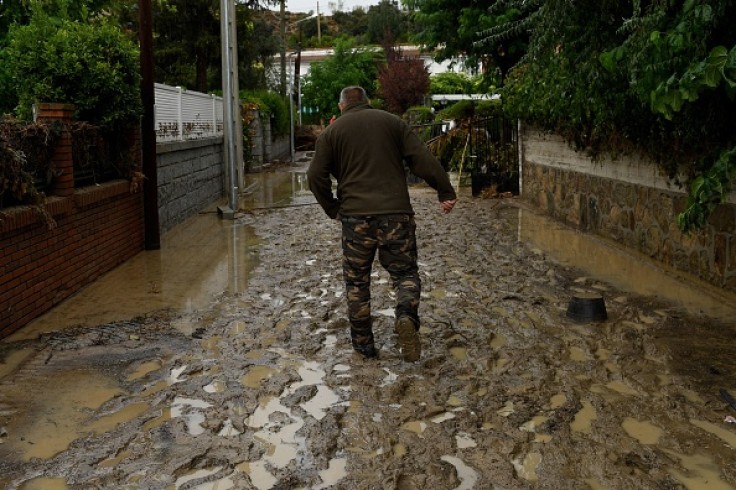
The devastation from Hurricane Idalia may have subsided, but an insidious and invisible threat remains. Health officials are issuing urgent warnings about Vibrio vulnificus, a potentially deadly flesh-eating bacterium, in floodwaters left in the storm's wake. The concern is particularly acute as millions are expected to throng the beaches during the Labor Day weekend.
Jae Williams, the press secretary for the Florida Health Department, emphasized the need for vigilance. "This type of bacteria shouldn't be taken lightly. It requires proper respect, akin to the caution we exercise around alligators and rattlesnakes," he said. Williams noted that the department began issuing alerts "as soon as a state of emergency was declared."
Where The Threat Looms Largest
Vibrio bacteria flourish in estuaries, inlets, and other warm, brackish water environments that hurricanes excel at creating. The coastal areas of Florida, Georgia, and the Carolinas are most vulnerable, due to standing water left by Hurricane Idalia's storm surges. "Rainwater dilutes the seawater, creating optimal conditions for these bacteria," explained retired microbiology professor James Oliver from the University of North Carolina, Charlotte.
The Centers for Disease Control and Prevention (CDC) report that Vibrio bacteria infect about 80,000 people in the U.S each year, with approximately 100 cases ending in death. These numbers tend to rise in the wake of hurricanes. After Hurricane Ian hit Florida last year, there were 38 new infections, three amputations, and 11 fatalities in the affected area within just a week. Similar surges were observed following Hurricane Katrina in 2005.
Vibrio vulnificus generally enters the body through a cut or a wound, often on the foot or ankle, while people wade through contaminated water. Once the infection sets in, symptoms begin with a lesion that can look like a spider bite. "Within 16 hours, the bacteria aggressively destroy surrounding tissue," said Oliver. Immediate medical attention and rapid administration of antibiotics are crucial.
Consuming raw oysters is another common route of infection. "When you eat a raw oyster, you're essentially eating whatever the oyster consumed, which may very well include Vibrio bacteria," warned Oliver.
Oliver highlighted an alarming trend: Vibrio infections are popping up earlier in the season, and in areas further north than traditionally observed. Climate change is cited as a contributing factor. "Because glaciers are melting, ocean salinity is decreasing, which allows Vibrio bacteria to thrive in more regions," said Oliver. Recently, three Vibrio-related deaths were reported in New York and Connecticut.
Vulnerable Groups
Men above the age of 40 and individuals with underlying health conditions, especially liver disease, are particularly vulnerable. A damaged liver increases the levels of iron in the blood-a nutrient that Vibrio bacteria thrive on.
For those who enjoy eating oysters, cooking them is the safest way to consume them, as high temperatures kill the bacteria. For beachgoers, the key preventive measure is straightforward: any open wounds must be covered before venturing into brackish waters. Dr. Rachael Lee, an associate professor in the division of infectious diseases at the University of Alabama at Birmingham, adds, "If you have a wound or develop one while at the beach, you absolutely should not expose it to potentially contaminated water."
Although the risk for most people is low, those who are more vulnerable should exercise extreme caution. If you're planning to celebrate this Labor Day weekend by the water, being informed and taking simple precautions could very well save your life. Given the increasing prevalence of Vibrio bacteria, staying educated and vigilant is more important than ever.